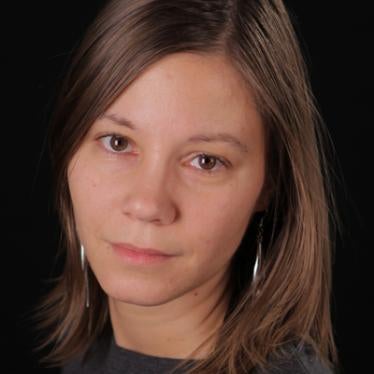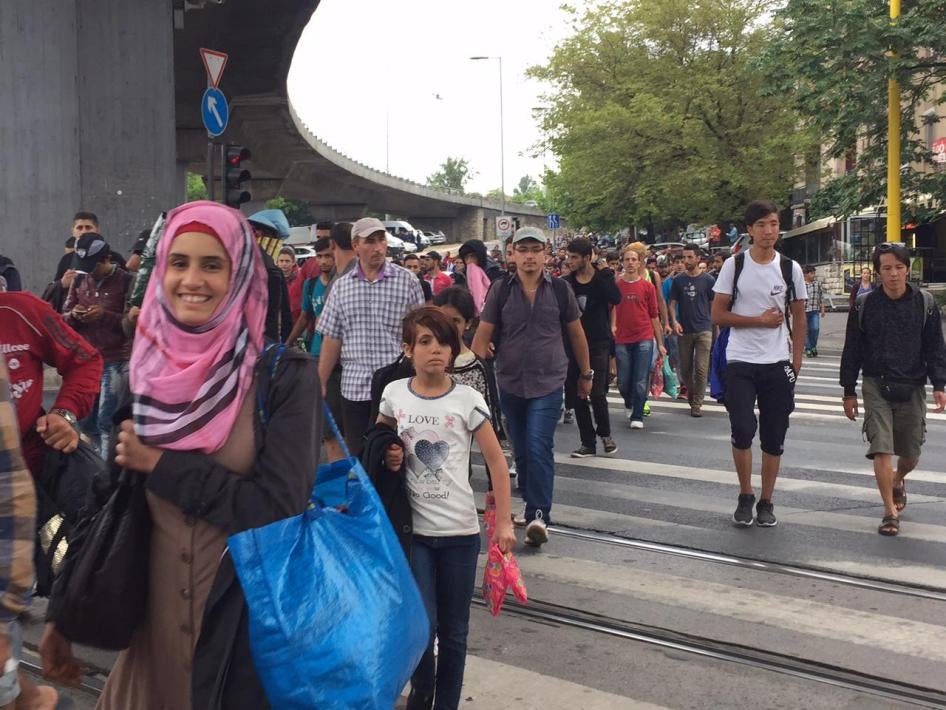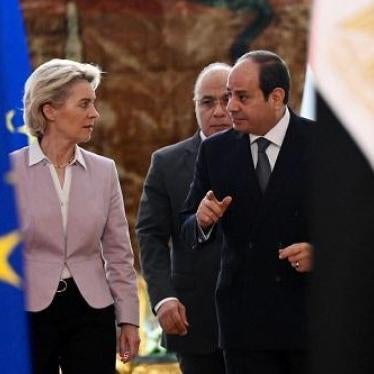Over the past two days, thousands of asylum seekers and migrants have embarked on a 100-mile march from Budapest to the Austrian border. They left behind the squalor and uncertainty at Keleti train station to create their own humanitarian corridor through the European Union. They made history.
They walked, heads held high, some carrying children, some only in socks, others on crutches. Kind Hungarians lined the motorway, soon shut down for safety reasons, handing out water, food, and baby strollers. Many refugees told me they loved the Hungarian people but that the government was very bad.
For several days, the Hungarian government had insisted on preventing anyone from reaching the Austrian border, cancelling trains to Western European destinations, in an almost bizarre defense of EU rules; the Dublin Regulations require the first country that asylum seekers enter to take responsibility and prevent them from traveling onward.
Late last night, while some refugees lay beside the motorway to sleep, the government relented and sent buses to pick up the marchers and some others still at Keleti station and take them to the Austrian border. Austria is allowing all those who reach the border to cross, and many have continued their journey to Germany. In both countries, people have shown extraordinary solidarity, welcoming the weary with blankets, provisions, and toys. And the Red Cross, stationed at the Austrian side of the border, made sure that people had a first night of decent sleep in a proper bed in days or even weeks. Over 2,000 Austrians have offered to drive to Budapest to bring asylum seekers by car to Austria and Germany.
With their long march, asylum seekers demonstrated the EU’s failure to address the refugee crisis at and within its borders. It’s been a very chaotic and emotional week in Budapest. I will never forget the courage and sheer determination of these people to decide their own fate and not let flawed EU policies or a hostile Hungarian government stand in their way. Their struggle shows the urgent need to reform EU asylum policies, distribute responsibility for asylum seekers fairly across the 28 member states, and create safe and legal channels into the EU.










